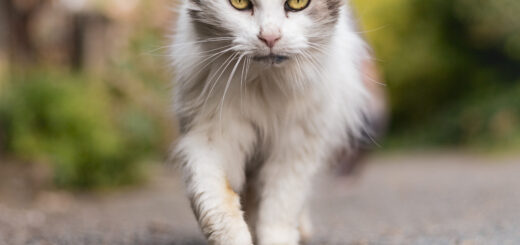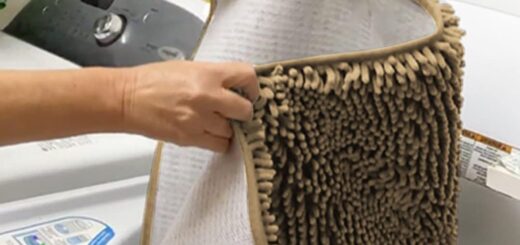Senior Cat Care: Promoting Comfort And Health In The Golden Years
As your feline companion grows older, it’s important to provide them with the utmost care and attention to ensure their comfort and health in their golden years. Senior cat care plays a crucial role in maintaining their overall well-being and can help prevent age-related health issues. From providing a cozy and warm environment to implementing a balanced diet and regular veterinary check-ups, supporting your senior cat’s needs is essential for ensuring they live a happy and fulfilling life as they age.
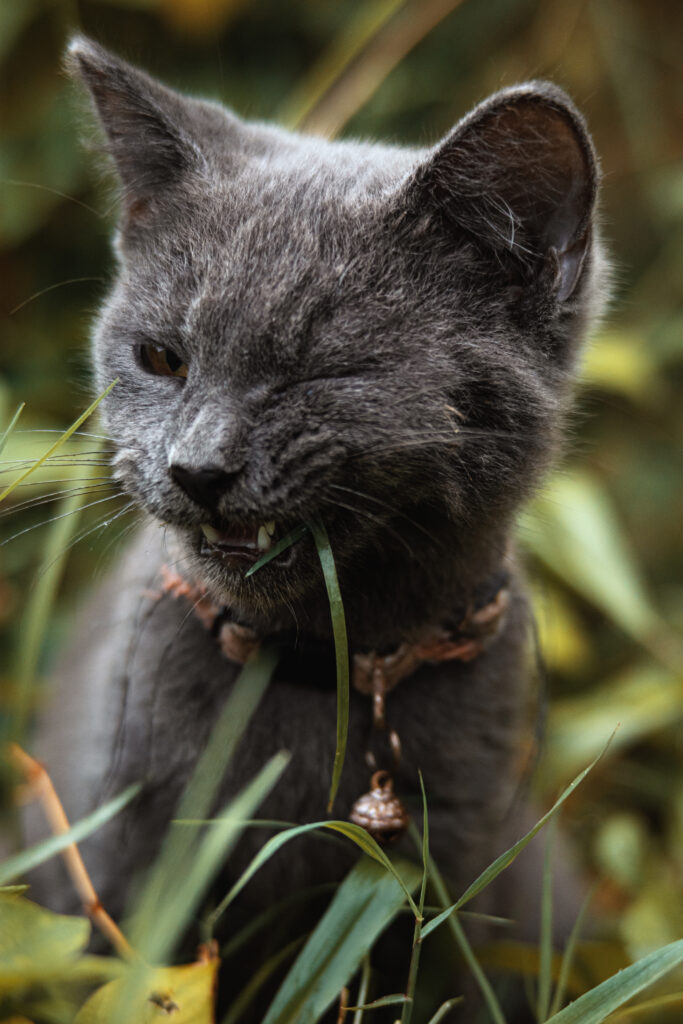
This image is property of images.pexels.com.
Click here to Understand & Speak With Your Cat!
1. Understanding the Aging Process
Changes in the body
As your cat ages, you may notice several changes in their body. One of the most common signs of aging is a decrease in muscle mass and tone. Your senior cat may not be as active as they once were, and their movements may be slower and less agile. Additionally, their metabolism may slow down, leading to weight gain if their diet is not properly adjusted.
Another change you may observe is a decrease in your cat’s senses. Their vision and hearing may not be as sharp as they once were, which can impact their overall quality of life. They may also experience dental issues such as gum disease or tooth loss, which can affect their ability to eat and groom themselves properly.
Common health issues in senior cats
Senior cats are prone to certain health issues, and it’s important to be aware of them. Some of the most common health problems in older cats include arthritis, kidney disease, heart disease, and hyperthyroidism. These conditions can significantly impact your cat’s comfort and overall well-being.
Signs of aging to watch for
It’s important to pay attention to the signs of aging in your senior cat, as early detection can help improve their quality of life. Some common signs of aging include reduced mobility, changes in appetite, weight loss or gain, increased thirst or urination, and changes in behavior or temperament. If you notice any of these signs, it’s important to consult with your veterinarian for further evaluation and guidance.
2. Providing a Comfortable Living Environment
Creating a cozy sleeping area
To ensure your senior cat’s comfort, it’s essential to provide them with a cozy sleeping area. Choose a warm and quiet spot in your home, away from drafts or excessive noise. Consider providing a soft and supportive bed or blanket for them to rest on. Elevated beds or ramps can also make it easier for them to get in and out of their sleeping area.
Ensuring easy access to food and water
As your cat ages, it’s important to make sure they have easy access to food and water. Consider placing food and water bowls in easily accessible locations, away from any obstacles or high surfaces that may be difficult for them to reach. You may also want to invest in elevated food and water bowls to reduce strain on their neck and joints while eating or drinking.
Managing litter box issues
Senior cats may experience litter box issues due to arthritis or other mobility issues. It’s crucial to provide them with a litter box that is easy for them to access. Choose a box with low sides or consider using a litter box with a cut-out entrance, making it easier for them to step in and out. Additionally, make sure the litter box is kept clean and easily accessible, as older cats may have a decreased ability to hold their bladder or bowels for extended periods.
Reducing stress and anxiety
Stress and anxiety can have a significant impact on your senior cat’s well-being. Provide them with a calm and quiet environment, away from any loud noises or sudden disturbances. Consider using pheromone diffusers or calming sprays to create a soothing atmosphere. It’s also important to maintain a consistent routine, as cats thrive on predictability and familiarity.
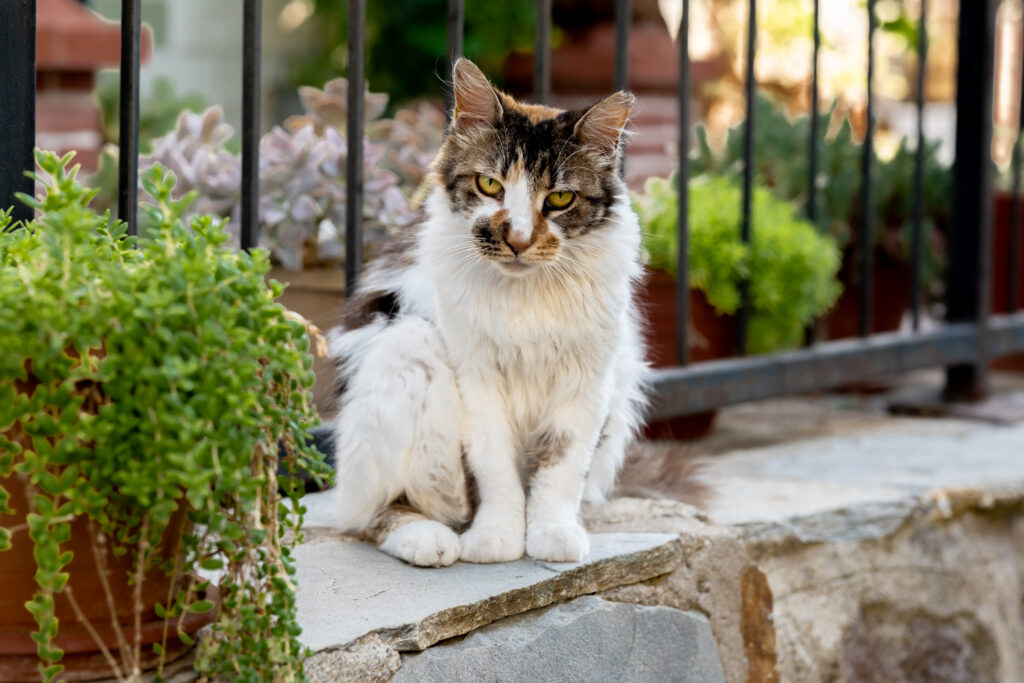
This image is property of images.pexels.com.
Click here to Understand & Speak With Your Cat!
3. Maintaining a Balanced Diet
Choosing appropriate senior cat food
As your cat ages, their nutritional needs may change. It’s crucial to choose a high-quality senior cat food that is specifically formulated to meet the needs of older cats. Look for a food that is easily digestible and contains adequate levels of protein, fiber, and essential nutrients. Consult with your veterinarian to determine the best diet for your senior cat based on their individual needs and any existing health conditions.
Supplements for optimal health
In addition to a balanced diet, certain supplements can support your senior cat’s overall health. Omega-3 fatty acids can help reduce inflammation and improve joint health, while glucosamine and chondroitin can promote joint mobility. Talk to your veterinarian about incorporating these supplements into your senior cat’s diet, as well as any other supplements that may be beneficial for their specific health needs.
Managing weight and portion control
Maintaining a healthy weight is crucial for your senior cat’s overall health and longevity. Obesity can increase the risk of various health problems, including diabetes and arthritis. Monitor your cat’s weight regularly and consult with your veterinarian to establish an appropriate feeding plan. Portion control is essential, as overfeeding can lead to weight gain. Avoid free-feeding and instead feed your cat appropriate portion sizes based on their age, size, and activity level.
4. Preventive Veterinary Care
Regular check-ups and vaccinations
Regular veterinary check-ups are essential for the well-being of your senior cat. Your veterinarian can monitor their overall health and detect any potential issues early on. It’s important to follow a recommended vaccination schedule to protect them against common infectious diseases. Your veterinarian may also recommend additional preventive care, such as bloodwork or imaging, to detect any age-related changes or diseases.
Dental care for senior cats
Dental health is crucial for your cat’s overall well-being. Poor dental hygiene can lead to gum disease, tooth loss, and even systemic infections. Make sure to schedule regular dental cleanings for your senior cat and practice good dental hygiene at home. Brush their teeth regularly using a cat-specific toothbrush and toothpaste. Your veterinarian may also recommend dental treats or water additives to support your cat’s dental health.
Early detection of age-related diseases
Early detection of age-related diseases is key to providing appropriate medical care for your senior cat. Schedule regular wellness exams, during which your veterinarian can evaluate your cat’s overall health and perform necessary screenings or tests. Be vigilant for any changes in your cat’s behavior, appetite, or litter box habits, as these can be early signs of underlying health conditions. Prompt veterinary intervention can help manage these diseases and provide your cat with the best possible quality of life.
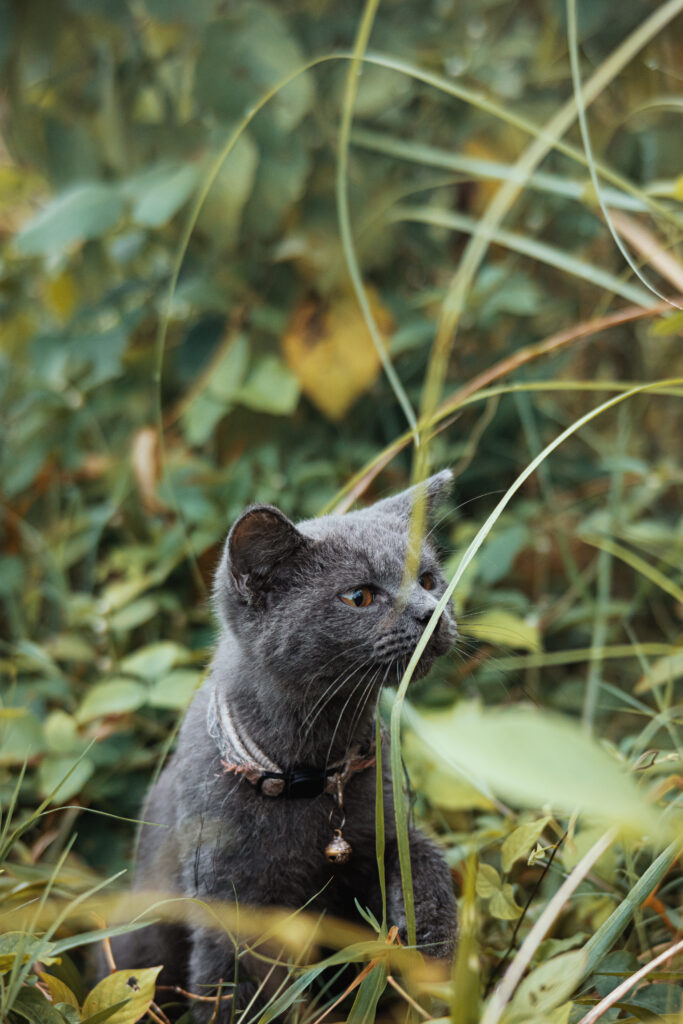
This image is property of images.pexels.com.
Click here to Understand & Speak With Your Cat!
5. Promoting Physical Activity
Keeping your senior cat active
Physical activity is important for maintaining your senior cat’s overall health and mobility. Although they may not have the same energy levels as when they were younger, it’s crucial to keep them engaged and encourage gentle exercise. Provide them with interactive toys that promote movement and mental stimulation. Engage in playtime sessions regularly to help keep their muscles toned and their minds active.
Suitable exercise options
As your cat ages, it’s important to choose exercise options that are suitable for their physical abilities and limitations. Gentle forms of exercise, such as using interactive puzzle toys or encouraging them to chase a laser pointer, can help keep them engaged without putting excessive strain on their bodies. Avoid activities that require jumping or climbing, as these can be challenging for senior cats with mobility issues.
Playtime and mental stimulation
In addition to physical activity, mental stimulation is crucial for your senior cat’s overall well-being. Engage in regular playtime sessions using toys that require them to think and solve puzzles. Consider using treat-dispensing toys or food puzzles to stimulate their minds and keep them mentally sharp. Providing them with a variety of toys and activities can help prevent boredom and promote a healthy and happy lifestyle.
6. Supporting Joint and Mobility Health
Joint supplements and pain management
Many senior cats develop arthritis or other joint-related issues as they age. Supporting their joint and mobility health is crucial for their overall comfort and well-being. Consult with your veterinarian about incorporating joint supplements, such as glucosamine and chondroitin, into your cat’s daily routine. They may also recommend pain management options, such as non-steroidal anti-inflammatory drugs (NSAIDs), to alleviate any discomfort or inflammation.
Creating a senior-friendly environment
Make some changes to your home to create a senior-friendly environment for your cat. Consider providing ramps or steps to help them access higher surfaces, such as beds or couches. Place soft and supportive bedding in their favorite resting areas to cushion their joints. Minimize the need for jumping or climbing by rearranging furniture or creating designated resting spots at ground level.
Monitoring and assisting with mobility issues
As your cat ages, they may experience decreased mobility and struggle with certain activities. Keep a close eye on their movements and observe any difficulties they may have with basic tasks, such as jumping or using the litter box. If necessary, provide assistance by gently lifting them onto higher surfaces or using a ramp or stairs to help them navigate around the house. If mobility issues persist, consult with your veterinarian for additional guidance and support.
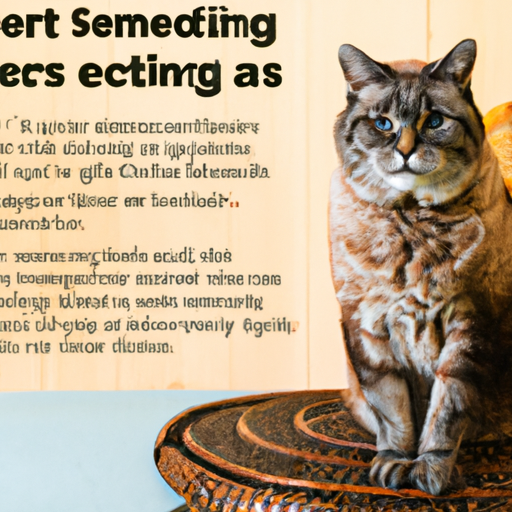
Click here to Understand & Speak With Your Cat!
7. Managing Chronic Conditions
Common age-related conditions
Senior cats are prone to various chronic conditions that require careful management. Some common age-related conditions include diabetes, kidney disease, thyroid disorders, and heart disease. These conditions may require lifestyle changes, medication, or specialized diets to manage effectively. Work closely with your veterinarian to develop a comprehensive treatment plan that addresses your cat’s specific needs.
Administering medication
If your senior cat requires medication to manage a chronic condition, it’s important to follow your veterinarian’s instructions carefully. Administering medication can sometimes be challenging, especially if your cat is resistant or difficult to handle. Consider using pill pockets or other medication delivery methods to make the process easier. If needed, consult with your veterinarian about alternative administration techniques or medications that may be better suited for your cat’s individual needs.
Working with your veterinarian for treatment plans
Managing chronic conditions in senior cats often requires ongoing collaboration with your veterinarian. Regular follow-up appointments, monitoring of symptoms, and adjustments to treatment plans may be necessary. Be proactive in communicating with your veterinarian and addressing any concerns or changes in your cat’s condition. With proper veterinary care and a comprehensive treatment plan, you can help ensure your senior cat’s comfort and quality of life.
8. Maintaining Dental Hygiene
Importance of dental care for senior cats
Dental hygiene is crucial for maintaining your senior cat’s overall health and well-being. Poor dental health can lead to pain, discomfort, difficulty eating, and even systemic infections. It’s essential to prioritize dental care as part of their routine healthcare. Regular dental check-ups, cleanings, and at-home dental care practices are all important aspects of maintaining optimal dental hygiene.
Brushing teeth and oral hygiene
Establishing a regular tooth-brushing routine is one of the most effective ways to maintain your senior cat’s dental health. Use a toothbrush specifically designed for cats and toothpaste that is safe for them to swallow. Start slowly and gradually introduce tooth brushing into their routine. Be patient and gentle, and reward them with treats or praise to make the experience positive. If your cat is resistant to brushing, consult with your veterinarian about alternative dental care options.
Periodontal disease and its treatment
Periodontal disease is a common dental issue in senior cats and can have serious health consequences if left untreated. It occurs when plaque and tartar build-up leads to inflammation and infection of the gums. In advanced stages, it can cause tooth loss and damage to the underlying structures. Regular dental cleanings performed by a veterinarian are crucial for managing periodontal disease. In some cases, extractions or other dental procedures may be necessary to address the extent of the disease.

Click here to Understand & Speak With Your Cat!
9. Monitoring Cognitive Function
Recognizing signs of cognitive decline
Cognitive decline, or senility, can occur in senior cats just as it does in elderly humans. It can manifest as changes in behavior, memory loss, confusion, or disorientation. Be vigilant for any signs of cognitive decline, such as increased vocalization, altered sleep patterns, house soiling, or changes in social interactions. If you notice any of these signs, consult with your veterinarian for further evaluation and guidance.
Environmental enrichment for mental stimulation
Providing environmental enrichment is essential for promoting mental stimulation and supporting cognitive function in senior cats. Offer a variety of toys and activities that encourage problem-solving and engagement. Consider using puzzle toys, treat-dispensing toys, or interactive toys that require your cat to work for their rewards. Rotate toys regularly to prevent boredom and keep their minds active.
Behavioral changes and potential interventions
Cognitive decline can sometimes lead to behavioral changes in senior cats. They may become more anxious, exhibit altered sleep patterns, or experience increased confusion or disorientation. If these changes affect their daily life or overall well-being, consult with your veterinarian for potential interventions. Medications or supplements designed to support cognitive function may be recommended to help manage these behavioral changes and improve your cat’s quality of life.
10. Ensuring a Safe Environment
Creating a hazard-free home
As your cat ages, it becomes even more important to create a hazard-free environment to prevent accidents and injuries. Remove any potential hazards such as loose cords, toxic plants, or small objects that could be swallowed. Keep household chemicals, medications, and cleaning supplies securely stored and out of your cat’s reach. Regularly inspect your home for any potential dangers and make appropriate adjustments to ensure a safe living space for your senior cat.
Preventing accidents and injuries
Senior cats may be more prone to accidents or injuries due to their decreased agility and mobility. Minimize the risk of falls by providing stable surfaces and removing any obstacles in their path. Use non-slip mats or carpet runners on slippery floors to prevent accidental slips and falls. If you have stairs, consider installing baby gates to limit access and reduce the risk of falls or injuries.
Emergency preparedness for senior cats
Being prepared for emergencies is crucial when caring for a senior cat. Keep a first aid kit on hand that includes essential supplies such as bandages, antiseptic solution, and a pet-friendly thermometer. Have contact information for your veterinarian and emergency veterinary clinics readily available. Consider microchipping your cat and keeping their identification up to date in case they become lost or separated from you during an emergency. Planning ahead can help ensure that you’re equipped to handle any unexpected situations that may arise.
By following these guidelines and providing proper care, you can help your senior cat enjoy their golden years with comfort, health, and happiness. Remember to consult with your veterinarian for individualized advice and guidance based on your cat’s specific needs and health conditions. With love, attention, and proactive care, you can make a significant difference in your senior cat’s quality of life.



